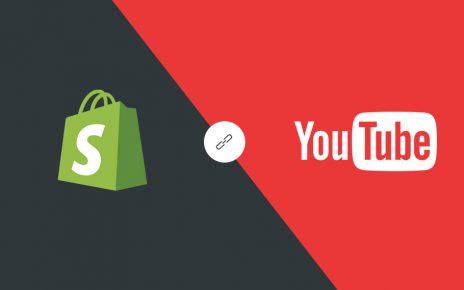Do you know what a 360 deal means? What about mechanical royalties? It’s time to know the basic terms record labels use so you won’t look stupid and you won’t make stupid mistakes. This list comes from two great sources- The Unsigned Guide, a great site for DIY musicians with tips and marvelous tools; and Record Label Resource, a music industry database.
360 DEAL – Rather than the traditional record deal, 360 deals allow music companies to take money from artists through additional revenue streams, other than just record sales, such as merchandise and touring. Although typically a 360 deal is struck with a record label, it doesn’t necessarily have to be the case. For instance, a few years ago Madonna signed a 360 deal with live music promoters Live Nation.
AF of M- An abbreviation for American Federation of Musicians.
AIR CHECKS- A recording made of a televised show on 3/4″ tape to be used for demo reels.
A SIDE- The A Side is the single chosen by the record company for radio play. It is expected to be “the hit.” The B Side is usually an album cut that is not expected to have significant radio play.
A&R – A&R stands for Artist & Repertoire. It refers to a department or job role, typically found within record companies or music publishers, whose responsibility it is to keep an eye out for new talent. In short, these are the people you should be directing your music to! Once they sign a deal with a band or artist, the A&R manager or department will work alongside them to develop them by finding suitable producers to work with and so on, with the main goal of getting a record made and released.
ADVANCE – A sum of money paid upfront to an artist when they sign a recording contract. Getting a large advance may seem like all your dreams have come true, but bear in mind that advances are recoupable i.e. the record label has loaned it to you and as soon as your release starts selling, they will claim the advance back from the sales revenue.
BIG FIVE- A phrase that collectively refers to the five largest corporations in the global music market: Universal, Sony, BMG, Warner, and EMI.
BILLBOARD-To emphasize or set apart a copy point is to “billboard” it.
CANS- Studio term meaning headphones.
COPYRIGHT – Copyright is the ownership of something you’ve created, allowing you to protect your works. It gives you a say in who copies, broadcasts or distributes your work and ensures you are credited for your creation. In the realms of record deals, you will usually hand over the copyright of your songs to the record company when you sign a recording contract. So as you’ll be handing over control of what happens to those songs, be sure this is definitely what you want to do before signing on the dotted line.
CROSS COLLATERALIZATION-Means of recouping the money spent on one song or recording against the earnings of another song or recording.
DONUT- A type of spot that has prerecorded material at the beginning and at the end with a “hole” in the middle for the voice part. The parts can be reversed as well, with the voice being the donut and the pre-recorded material in the hole.
EXCLUSIVITY – A word you are likely to come across when signing most agreements in the music industry. In terms of a record deal, exclusivity mentioned in a contract means that you will record exclusively for the record label in question during the length of the contract, and not put out releases under any other label.
FAN FUNDING – For those looking for alternative sources of funding other than from a record label, fan-funding is a way for your fans to invest in your new release or project. This is generally done online and in advance so you can raise money for an EP before you release it, rather than pay for it out of your own pocket and hope it brings in enough sales to break even. Some of the better known fan-funding platforms used by bands and artists includePledge Music and Kickstarter. Read more about fan-funding for your music here.
FREE GOODS- A fixed percentage of product deducted from the total in a shipment to account for “giveaways” and promotional copies distributed for free. No royalties are paid to the artist for “free goods.”
INDEPENDENT LABELS – An independent record company, or indie label as you may know it better, is a record label operating on its own independent funding. An independent label can range from the very small, run out of your bedroom types right up to the large-scale candidates such as XL Recordings, Domino, Rough Trade and Ninja Tune. The main difference between signing a deal with an independent record label as opposed to a major label is that typically the sales revenues are split more equally with some being agreed at 50/50 between the label and artist.
MAJOR LABELS – Sony BMG, Universal Music, Warner Music Group and EMI make up the 4 major record labels, although this is all set to change as EMI is currently up for sale and it looks likely that Universal Music could be the potential new owners, merging the big 4 into 3. The major labels are also made up of many smaller, specialist subsidiary labels – read more about those below.
MASTER USE LICENSE- A license granting permission to use existing recorded material, including but not limited to: vocals, music, TV or film dialog, speeches, and sound effects. For sampled material, a Master Use License is required regardless of the length or amount of material that is used.
MECHANICAL ROYALTIES – Royalties are split into 2 types: performance and mechanical. We really couldn’t explain mechanical royalties any better than the PRS For Music who sum it up as follows: ‘Mechanical royalties entitle you to earn money whenever a song or composition that you have written is reproduced. This includes when your works are recorded onto a physical product (such as a CD or audio-visual product), or listened to or downloaded off the internet.’ Read up more on performance and mechanical royalties here.
PPL – PPL are a collection society; they collect royalties for recording artists and record labels and pass them on. They do this by licensing recorded music that is broadcast in public, collecting the money earned and distributing it onto whomever owns the copyright of the recordings.
MCPS – This stands for Mechanical Copyright Protection Society and, similar to PPL, they are also a collection society making sure royalties are distributed for the copying of music recorded to CD, vinyl and downloadable formats. They merged with PRS For Music several years ago and now operate under this moniker. There’ll be more about PRS For Music in our Music Publishing blog which will be coming shortly!
RECOUPABLE – In short this means repayable. So every time you are offered a recoupable advance, whether it be as part of a record, production or publishing contract, this money is effectively a loan. When your release starts making sales, the advance will be recouped from the revenue. Once it is recouped in full, you will then start making money yourself.
ROSTER – When a record label refers to their roster, they are talking about the list of artists and bands that they currently have signed to them and are working with.
SUBSIDIARY LABEL – The major labels are made up of many smaller subsidiary record labels which operate under the same umbrella. For instance, Columbia Records is part of major label Sony BMG. Other subsidiary labels within a major may include specialist and genre specific companies such as EMI Classics.
TERM – You will spot this word amongst most contracts, not just limited to the music business, and it refers to the length of the agreement.
TERRITORIES – Another recording contract related reference, territories refer to areas of the world that your contract applies to. Some record labels may sign an agreement with you for a particular territory, say United Kingdom or Europe, and this then allows you to enter into other recording contracts for different territories such as USA, so your music can be released there.
UNSOLICITED DEMOS – You have probably come across the sentence ‘Do not accept unsolicited demos’ in your time and may feel unclear; do they accept demo submissions at all? Yes, they do…but only demos they have asked for. So unless the record label hears a buzz about you and requests some music to be sent onto them, or you have a good manager who can get your foot through the door, there is little point wasting your efforts on submitting material. Harsh, but true.
_____________________________________________________________________
James Hill is a veteran of the music industry. He first worked at Warner Reprise Records then later joined Interscope/ Geffen Records where he managed producers and songwriters and got his first platinum record for Keyshia Cole’s The Way It Is. He is now helping indie artists with branding and manufacturing through his company Unified Manufacturing, a CD/DVD/vinyl and merch company in LA.




